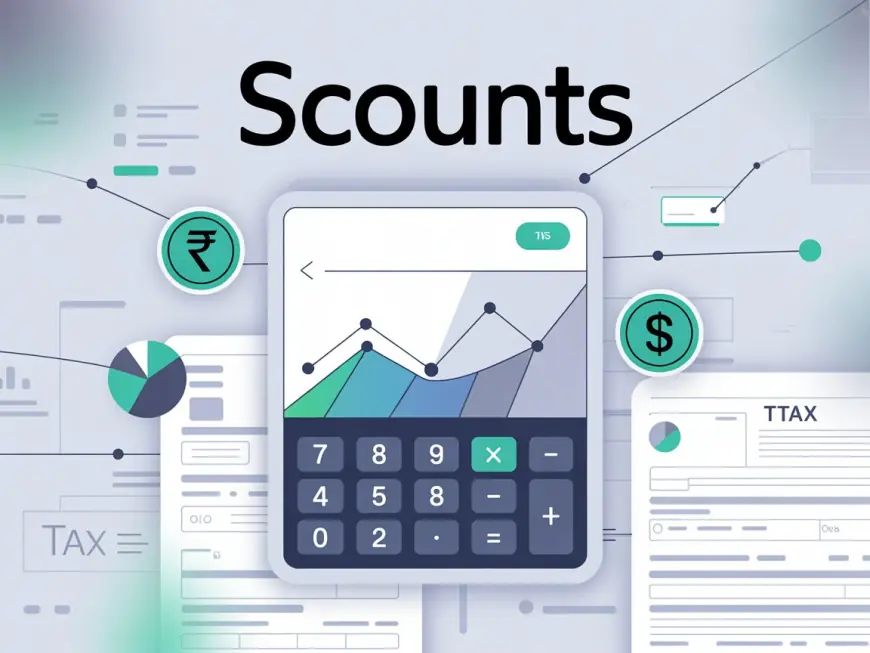Crypto Tax in Pakistan: A Complete Guide for Investors and Traders
Worried about crypto tax in Pakistan? This comprehensive guide explains FBR regulations, tax rates for trading/mining, compliance tips, and future changes. Stay legal!
Cryptocurrency has gained significant popularity in Pakistan over the past few years, with many investors and traders entering the digital asset space. However, as the crypto market grows, so does the need for regulatory clarity—especially regarding taxation.
The Federal Board of Revenue (FBR) has yet to establish definitive crypto tax laws, but that doesn’t mean crypto transactions are tax-free. Understanding the tax implications of cryptocurrency in Pakistan is crucial to avoid legal complications and ensure compliance with existing tax frameworks.
In this guide, we’ll explore:
-
The legal status of cryptocurrency in Pakistan
-
How crypto transactions may be taxed under current laws
-
Tax obligations for traders, investors, and businesses
-
Record-keeping and reporting best practices
-
Future expectations for crypto taxation in Pakistan
Is Cryptocurrency Legal in Pakistan?
Before diving into taxation, it’s essential to understand the legal standing of cryptocurrency in Pakistan.
-
State Bank of Pakistan (SBP) Stance: In 2018, the SBP banned financial institutions from dealing with cryptocurrencies, citing risks related to money laundering and terrorism financing. However, this ban does not make crypto ownership illegal—it only restricts banks from facilitating crypto transactions.
-
SECP’s Approach: The Securities and Exchange Commission of Pakistan (SECP) has shown interest in regulating digital assets, exploring blockchain technology for financial markets.
-
FBR’s Tax Perspective: While no specific crypto tax laws exist, the FBR expects taxpayers to declare crypto earnings under existing income tax laws.
Can You Trade or Invest in Crypto Legally?
Yes, individuals can buy, sell, and hold cryptocurrencies, but they must be cautious about banking restrictions. Peer-to-peer (P2P) trading remains the most common method for acquiring crypto in Pakistan.
How Is Cryptocurrency Taxed in Pakistan?
Since Pakistan lacks explicit crypto tax regulations, the FBR applies general tax principles to cryptocurrency transactions. Here’s how different crypto activities may be taxed:
1. Crypto Trading (Capital Gains Tax)
If you buy and sell cryptocurrencies for profit, your gains may be classified as:
-
Short-term capital gains (if held for less than one year) – Taxed as ordinary income (up to 35% based on tax brackets).
-
Long-term capital gains (if held for more than one year) – Potentially taxed at a lower rate, but clarity is needed from FBR.
Example: If you buy Bitcoin for $5,000 and sell it for $8,000 within six months, the $3,000 profit may be taxed as income.
2. Crypto Mining (Income Tax)
Mining cryptocurrency is considered a business activity, meaning:
-
Mining rewards are taxable as business income.
-
Expenses (electricity, hardware) may be deductible.
-
Miners must register with FBR if earning above the taxable threshold.
3. Crypto as Payment (Sales Tax/VAT)
If a business accepts crypto for goods/services, the transaction value must be converted to PKR and reported for:
-
Income tax (treated as business revenue).
-
Sales tax (if applicable to the goods/services sold).
4. Crypto Gifts & Airdrops
-
Gifts: If you receive crypto as a gift, it may be tax-free up to a certain limit, but large amounts could be taxable.
-
Airdrops: Free crypto distributions may be considered income and taxed accordingly.
How to Report Crypto Taxes in Pakistan
Since crypto transactions are not yet formally regulated, taxpayers must take a proactive approach:
1. Maintain Detailed Records
-
Dates and amounts of all crypto transactions.
-
Wallet addresses and counterparty details.
-
Receipts for mining expenses (if applicable).
2. Convert Crypto to PKR for Tax Reporting
All crypto earnings must be converted to Pakistani Rupees (PKR) using the fair market value at the time of the transaction.
3. File Taxes Under the Correct Category
-
Individual Traders: Report gains under "Capital Gains" or "Other Income."
-
Businesses: Include crypto revenue in business income filings.
4. Stay Updated on Regulatory Changes
The FBR may introduce specific crypto tax guidelines soon, so staying informed is crucial.
Future of Crypto Taxation in Pakistan
Pakistan is slowly moving toward crypto regulation. Possible future developments include:
-
Clear Crypto Tax Laws: The FBR may introduce dedicated tax rules for digital assets.
-
Licensed Exchanges: SECP could approve regulated crypto exchanges, making taxation more straightforward.
-
CBDCs (Digital Rupee): The SBP is exploring a central bank digital currency (CBDC), which may influence crypto policies.
Conclusion
While Pakistan does not yet have specific Crypto tax in pakistan, cryptocurrency transactions are not tax-free. Traders, investors, and businesses must comply with existing tax frameworks by reporting crypto earnings under income tax, capital gains, or business income categories.
As the regulatory landscape evolves, staying compliant will become increasingly important. If you need assistance with crypto tax filings, accounting, or tax advisory services, Scouts Tax Services can help. We specialize in tax solutions for individuals and businesses, ensuring compliance with FBR regulations.
What's Your Reaction?
 Like
0
Like
0
 Dislike
0
Dislike
0
 Love
0
Love
0
 Funny
0
Funny
0
 Angry
0
Angry
0
 Sad
0
Sad
0
 Wow
0
Wow
0


















































